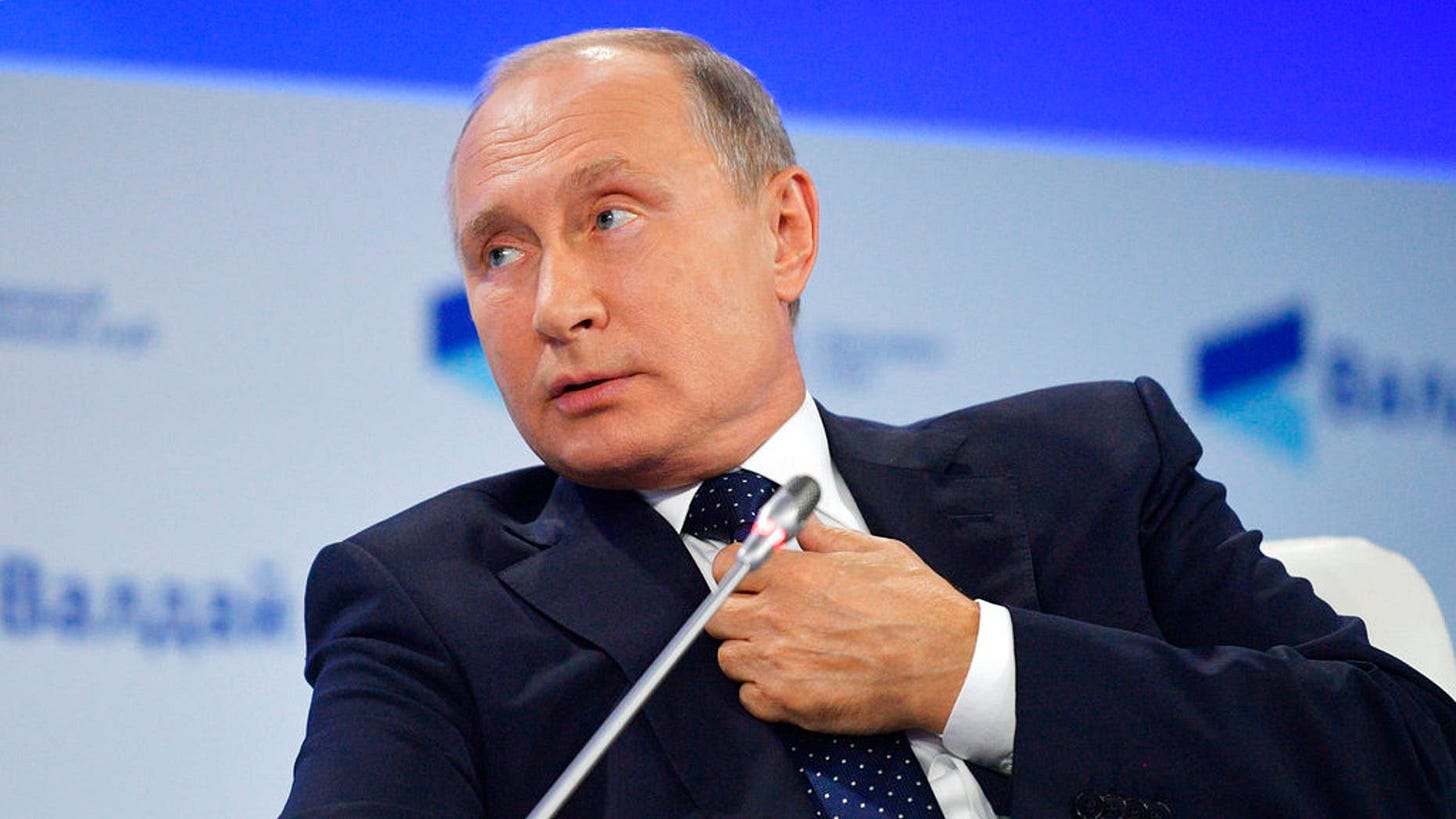Is Donald Trump really the "Kremlin's Man" in Washington?
After remaining silent following Trump’s victory, Vladimir Putin congratulated the new American president on Thursday, expressing his readiness to work with him—without dispelling certain ambiguities.

On Thursday, November 7, Vladimir Putin spoke during a plenary session of the prestigious Valdai Discussion Club, a Russian think tank that, for the past two decades, has gathered academics, experts, and political leaders to ponder Russia’s place in the world’s future. Putin’s speech focused on “universal security and equal opportunities for development in the 21st century.” Yet, if all eyes were on him, it wasn’t merely to hear him elaborate once again on tomorrow’s “multipolar” world. It was the Russian president’s first public statement since Donald Trump’s election, and his entourage had hinted that Putin might finally reveal his true thoughts on the matter—on how the new occupant of the White House could reshape the course of the ongoing war.
But to hear this, the audience had to wait. A long time. Almost as though this subject held little importance for the Russian president. He kept his audience waiting for nearly five hours before speaking, then spent hours discussing topics like "technological sovereignty," artificial intelligence, and climate. Only two hours later did the moderator broach the question of his views on Trump. Putin promptly expressed admiration for Trump’s “courage” (referring to an attempted attack on him during the campaign). “It’s in exceptional circumstances that a man reveals his essence, and the Republican candidate has shown himself to be a very brave man,” Putin said. As for Trump’s ambition to end the war in Ukraine? “It’s an intention that, at the very least, deserves our attention,” Putin continued, adding that Russia was ready to work with him. “And I take this opportunity to congratulate him on his election as President of the United States,” he concluded.
The question remains whether these statements will dispel the ambiguity cultivated so far by the Kremlin regarding the American election. Regularly questioned on the matter, Putin had previously stated his preference for Joe Biden, whom he found “more predictable,” calling him an “old-school politician”—and thus better suited to Russia’s interests. When Kamala Harris took up Biden’s campaign, Putin was charmed by her “contagious laugh,” which he claimed signaled that “everything was going well for her.” However, on October 24, during the close of the BRICS summit in Kazan, he had found Trump’s remarks about ending the war “sincere.” Yet, after Trump’s election, as other heads of state were lining up to offer their congratulations, Putin remained silent, leaving an array of lower-ranking Russian officials to comment on his behalf.
An anti-Russian policy, regardless of the President
Putin’s spokesperson, Dmitry Peskov, explained that the Kremlin’s leader had other matters to attend to (inaugurating, via videoconference, a new nuclear-powered icebreaker, for example) and reminded listeners that the United States is “a hostile nation, either directly or indirectly at war” with Russia. “Victory belongs to those who cultivate love for their country, not hatred of others,” wrote Maria Zakharova, the Russian Foreign Ministry’s spokesperson, on her Telegram account the morning of November 6. Receiving his Serbian counterpart, Vyacheslav Volodin, the Speaker of the Duma (the Russian parliament), declared that the “era of Biden, Scholz, and Macron is over.” “It’s time for politicians who put their country first—their national economy and development—not at the expense of others but purely for the benefit of their own people.” Former President Dmitry Medvedev praised Trump’s “persistence,” hoping that the American “deep state” would not hinder his resolve again.
But these messages of support, subtle or otherwise, were swiftly accompanied by warnings to be wary of the new American president. “Russia harbors no illusions about the elected American president, well-known to us, nor about the new Congress,” declared the Russian Ministry of Foreign Affairs in an official statement dated May 6. “The U.S. political elite, regardless of party affiliation, remains committed to its anti-Russian agenda,” the statement read.
Donald Trump could become dangerous for Moscow
Several experts, both official and independent, have voiced doubts about Trump’s ability to end the war. “Imagine he calls our president tomorrow and proposes a halt to hostilities. Why would we stop when we have the upper hand on the front?” pondered Kremlin-linked political analyst Andrei Klintsevitch. Both men admitted that, if faced with resistance from the Kremlin, Trump could become far more dangerous, despite the perceived sympathy he and Putin might have for each other.
After gathering insights from multiple high-ranking Russian officials, Andrei Pertsev of the independent news site Meduza even claims that the Kremlin never truly “bet” on Trump in this election. “The wager wasn’t so much on the victory of any specific candidate, but on the likelihood that the opposing side would refuse to recognize the election results,” confided one of his sources. The expected outcome: a deeply polarized America, teetering on the edge of chaos, increasingly distrustful of the virtues of democracy… In short, an outcome even more advantageous than Trump’s triumphant return to the White House.



